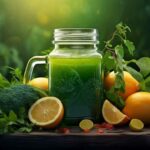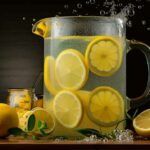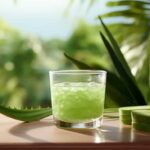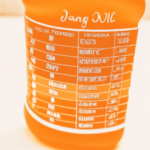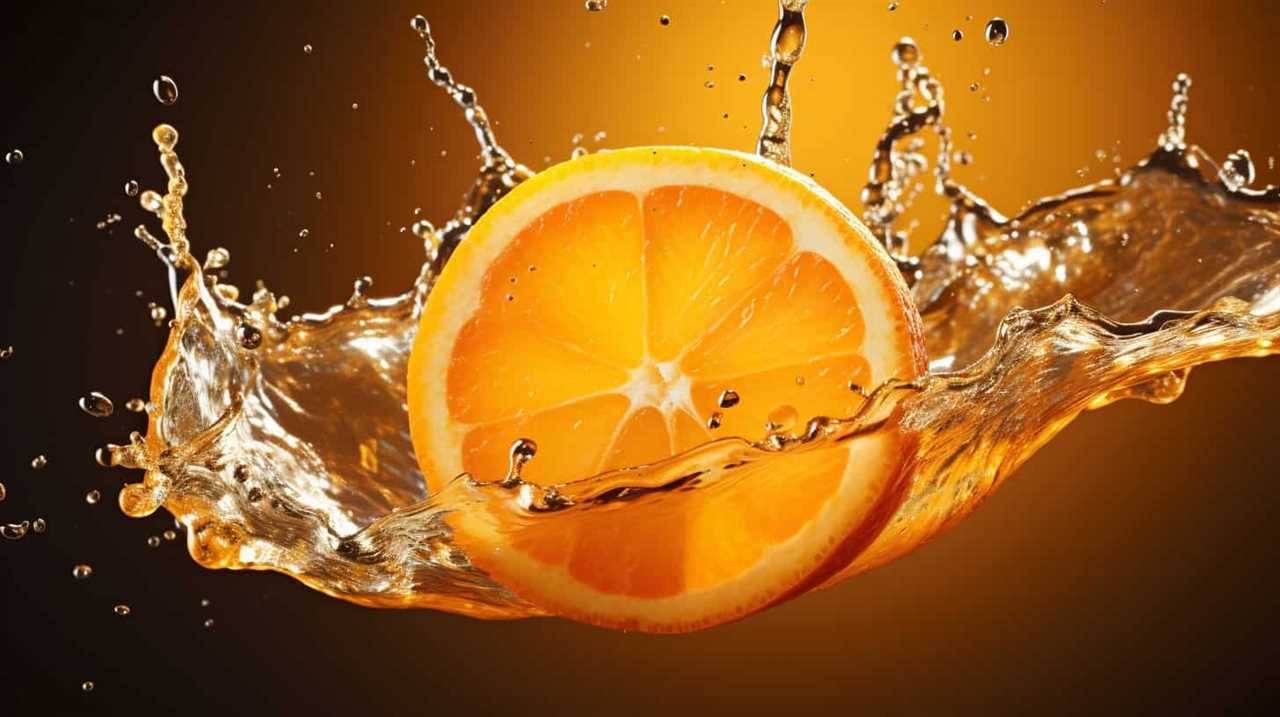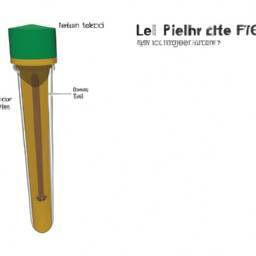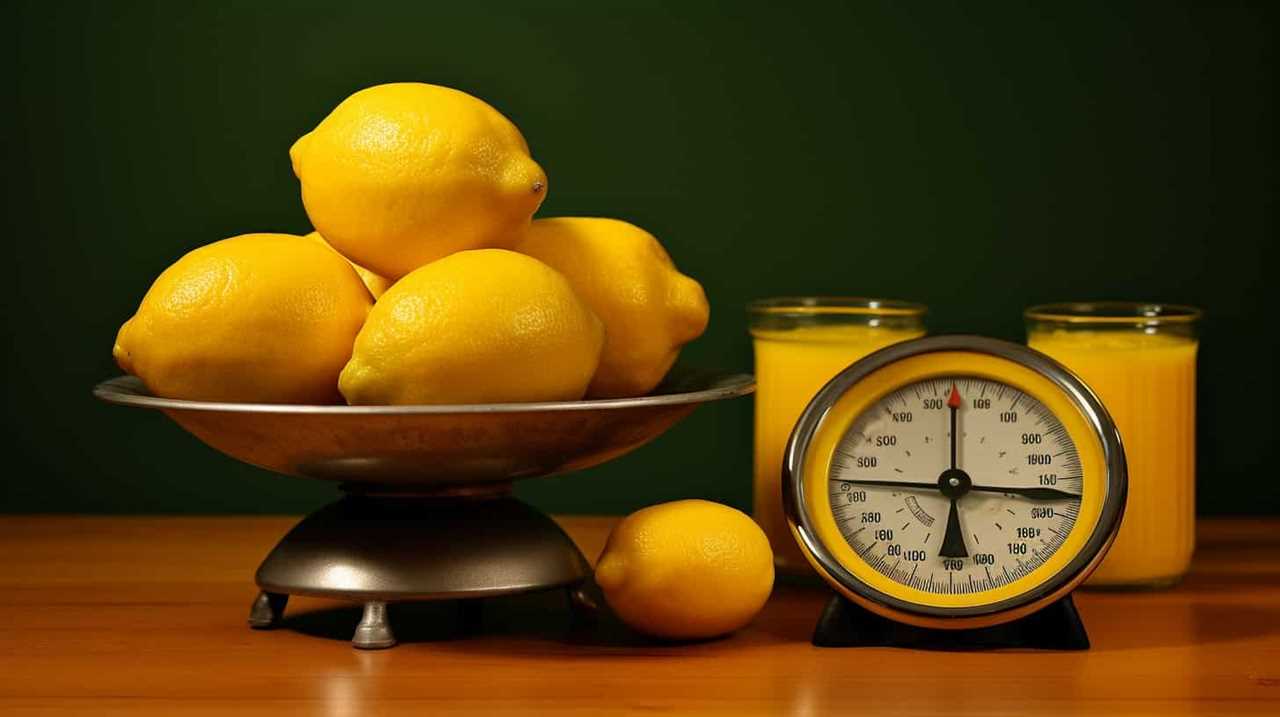
Throughout our quest to fulfill your desire for a refreshing glass of orange juice, we delved into the scientific methods used in its production.
Through squeezing oranges, we discovered the secret to calculating the precise number of oranges needed for that perfect glass.
Join us as we explore the factors that affect the quantity of oranges in your juice and unveil alternative methods of extraction.
Get ready to sip on knowledge and satisfy your citrus cravings!
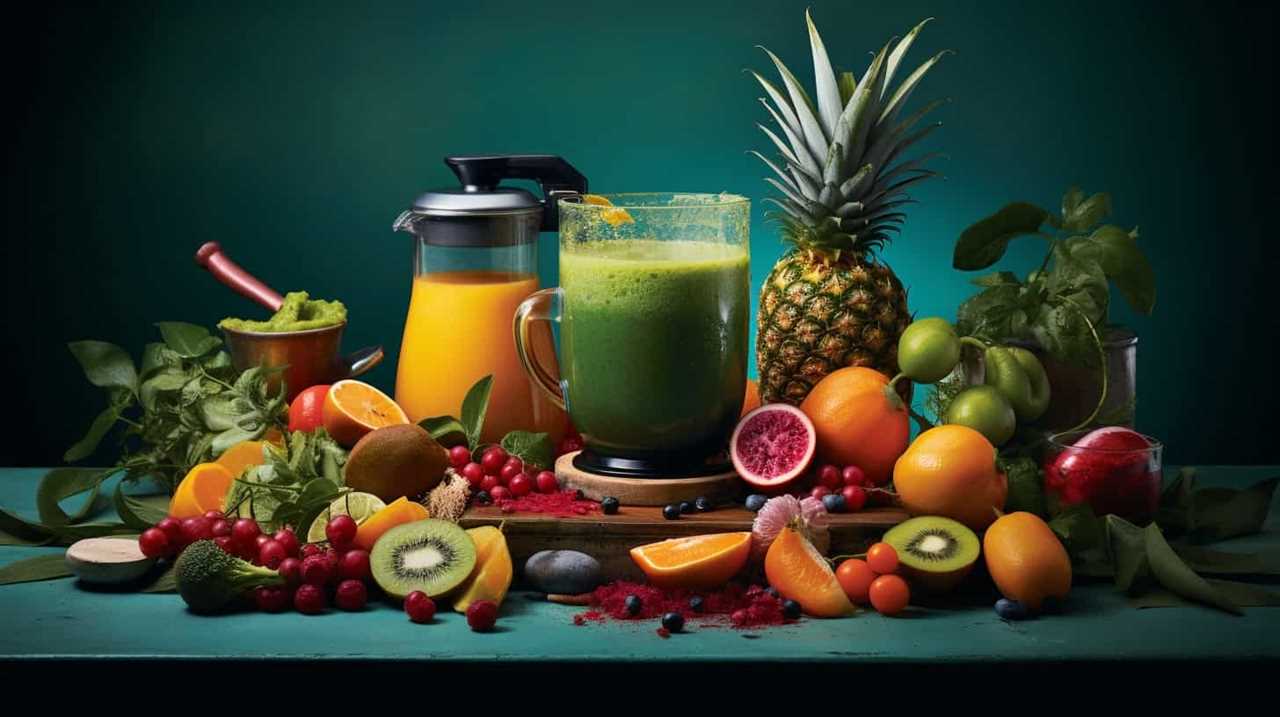
Key Takeaways
- The ripeness and size of oranges can affect the quantity of juice produced in a glass of orange juice.
- Refrigeration and pasteurization are important techniques for preserving the freshness and health benefits of orange juice.
- Orange juice is a rich source of essential nutrients like vitamin C, potassium, and folate.
- Alternative methods of orange juice extraction, such as cold pressing and enzyme breakdown, can enhance the efficiency and quality of juice production.
The Science Behind Orange Juice Production
We can explore the science behind orange juice production by examining the various steps involved in turning fresh oranges into a delicious and nutritious beverage.
Orange juice preservation is an important aspect of the production process. To ensure that orange juice remains fresh and tasty, techniques such as pasteurization and refrigeration are used. Pasteurization involves heating the juice to eliminate harmful bacteria, while refrigeration helps to slow down the growth of microorganisms. These methods not only contribute to the preservation of orange juice but also help to maintain its health benefits.
Orange juice is packed with essential nutrients like vitamin C, potassium, and folate, which are important for maintaining a healthy immune system, boosting energy levels, and supporting overall well-being.
As we delve further into the process of squeezing oranges for juice, we’ll discover the key steps involved in extracting this flavorful liquid.

The Process of Squeezing Oranges for Juice
During the process of squeezing oranges for juice, we carefully cut the oranges in half and then press out the juice using a manual juicer. This method ensures that we extract the maximum amount of juice from each orange. The benefits of drinking orange juice are numerous. It is a rich source of vitamin C, which boosts the immune system and promotes overall health. Orange juice is also high in antioxidants, which help protect the body against free radicals. Additionally, orange juice provides essential nutrients such as potassium and folate. The history of orange juice production dates back to ancient times when oranges were first cultivated in China. Over the years, the process has evolved, and today, it involves modern machinery that efficiently extracts juice from oranges.
| Benefits of Drinking Orange Juice | History of Orange Juice Production |
|---|---|
| Rich in Vitamin C | Ancient cultivation in China |
| High in Antioxidants | Evolution of production process |
| Provides Potassium and Folate | Modern machinery used |
Calculating the Number of Oranges Needed for a Glass
To determine the number of oranges needed for a glass, we can start by estimating the average size and juiciness of each orange and then calculate how many oranges it would take to produce the desired amount of juice. When calculating accuracy, it’s important to consider the size requirements of the glass.
On average, a medium-sized orange produces about 1/3 cup of juice. If our glass requires 1 cup of juice, we’d need approximately 3 oranges. However, this estimation may vary depending on the size and juiciness of the oranges. It’s always a good idea to have an extra orange or two on hand in case the ones you have yield less juice than expected. Additionally, when using fresh juice, it’s important to remember that there is no alcohol content naturally present, so if you’re wondering “how much alcohol in juice,” the answer is none unless it’s been specifically added. Freshly squeezed orange juice is a delicious and healthy option for both standalone drinks and as an ingredient in various cocktails.
It’s always a good idea to have extra oranges on hand to ensure we’ve enough juice for our guests. By considering these factors and using our calculations, we can determine the precise number of oranges needed for a glass of orange juice.
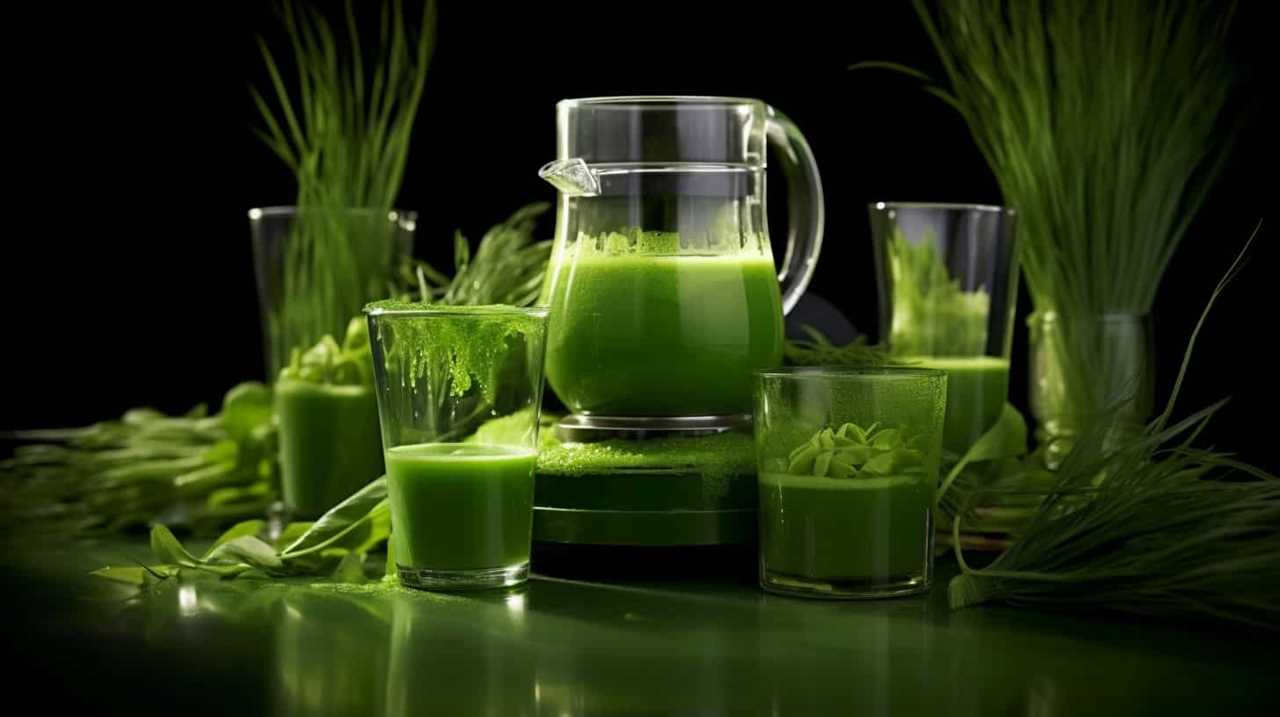
Factors That Affect the Quantity of Oranges in Juice
There are several factors that can affect the quantity of oranges in juice. These factors include the ripeness and size of the oranges, as well as the efficiency of the juicing process.
The water content of the orange is a significant factor that influences the juice yield. This water content varies depending on the ripeness of the orange. Ripe oranges tend to have higher water content, which results in a higher juice yield.
In addition to ripeness, the size of the oranges also plays a role in determining the quantity of juice. Generally, larger oranges produce more juice compared to smaller ones.
The efficiency of the juicing process is another crucial factor. A well-designed juicer can maximize juice yield by effectively extracting the juice from the fruit.
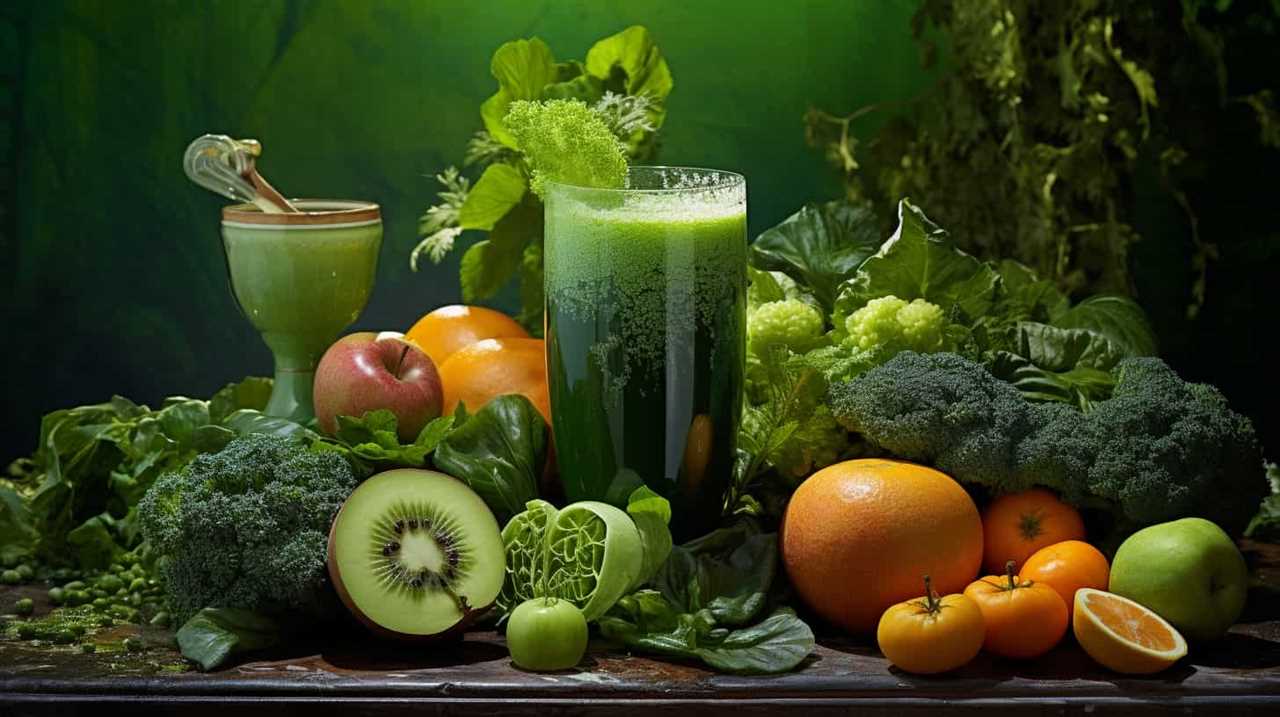
Lastly, the orange variety can impact the quantity of juice. Some varieties are naturally juicier than others, leading to a higher juice yield.
Exploring Alternative Methods of Orange Juice Extraction
We can explore various innovative methods to extract orange juice more efficiently. By utilizing alternative orange juice extraction techniques, we can enhance the process and reap several benefits.
One such method is cold pressing, which involves using a hydraulic press to extract juice from oranges without exposing them to heat. This preserves the natural flavors and nutrients of the oranges, resulting in a higher quality juice.
Another technique is using enzymes to break down the cell walls of oranges, making it easier to extract juice. This method not only increases juice yield, but also reduces waste.
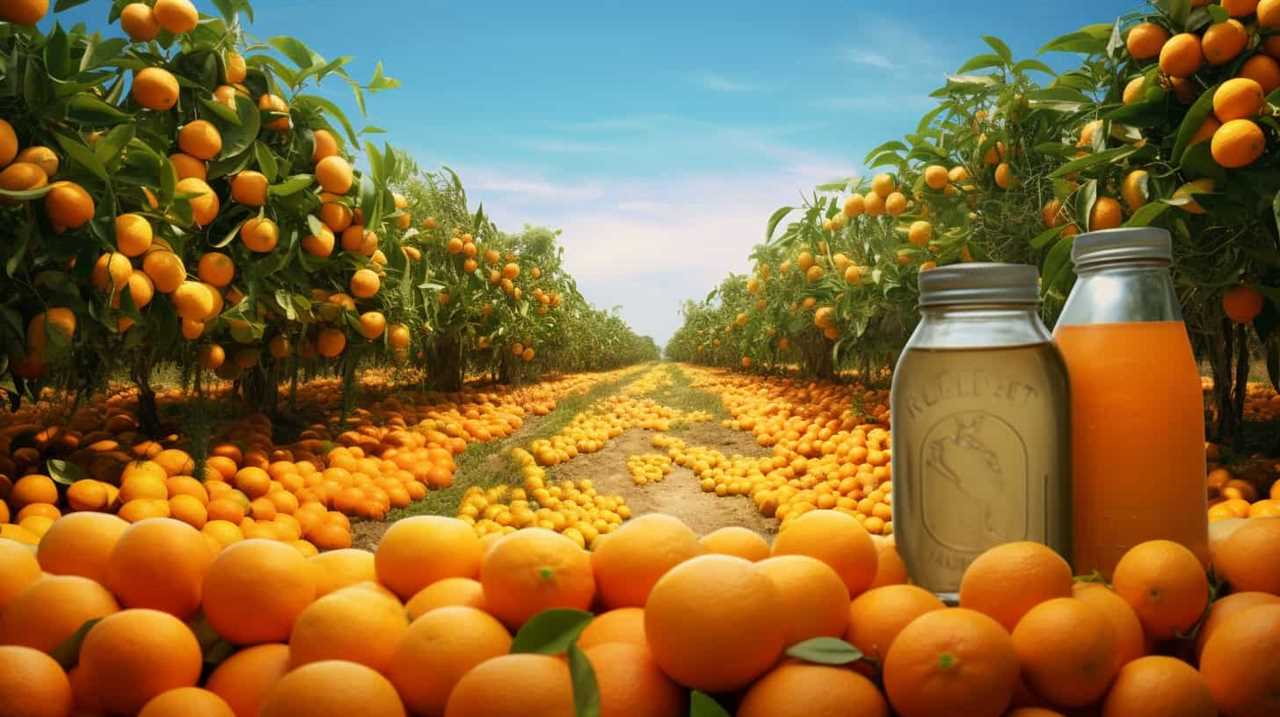
Additionally, using centrifugal juicers can extract juice quickly and effectively. These alternative methods provide benefits such as improved juice quality, increased yield, and reduced waste, making them valuable options for orange juice extraction.
Frequently Asked Questions
How Many Calories Are in a Glass of Orange Juice?
We’re here to help! A glass of orange juice typically contains around 112 calories. It’s a good source of vitamin C and other essential nutrients, making it a nutritious choice for your daily intake.
What Are the Health Benefits of Drinking Orange Juice?
Drinking orange juice has numerous health benefits. It can improve skin health and aid in weight loss. These benefits make orange juice a great choice for those looking to improve their overall well-being.
Can Orange Juice Help Prevent or Treat Certain Health Conditions?
Orange juice can be a part of prevention strategies for certain health conditions. However, it’s important to note that it also has potential risks, such as high sugar content and acidity. Always consult with a healthcare professional for personalized advice.
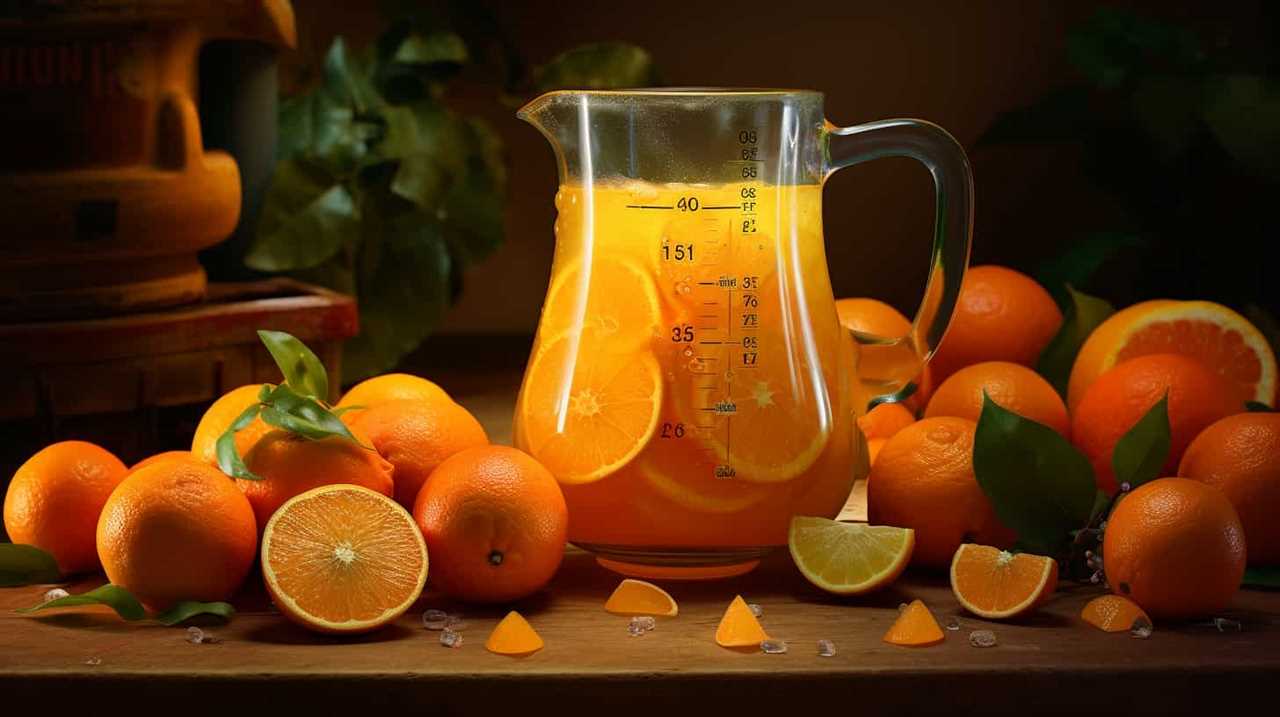
What Is the Recommended Daily Intake of Orange Juice?
The recommended daily intake of orange juice varies depending on individual nutritional needs. It is important to consider the nutritional value of orange juice, which includes vitamins, minerals, and antioxidants.
How Long Does Freshly Squeezed Orange Juice Last in the Refrigerator?
Freshly squeezed orange juice lasts for about 2-3 days in the refrigerator. To maximize its shelf life, store it in an airtight container and keep it chilled. Enjoy its refreshing taste while it lasts!
Conclusion
In conclusion, the quantity of oranges needed for a glass of orange juice varies based on various factors such as size, juiciness, and extraction method. While the exact number can’t be determined without specific measurements, it’s safe to say that a glass of orange juice typically requires multiple oranges.
Remember, the flavor and freshness of the juice depend on using the right amount of oranges, ensuring a delightful and delicious experience.

Susannah expertise lies in researching and compiling evidence-based content on juicing, nutrition, and overall health. She is committed to ensuring that The Juicery World offers accurate, up-to-date, and trustworthy information to empower readers to take control of their health. Susannah’s goal is to inspire individuals to embrace juicing as a way to nourish their bodies and live their best lives.




